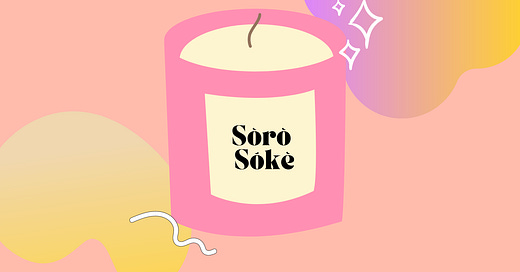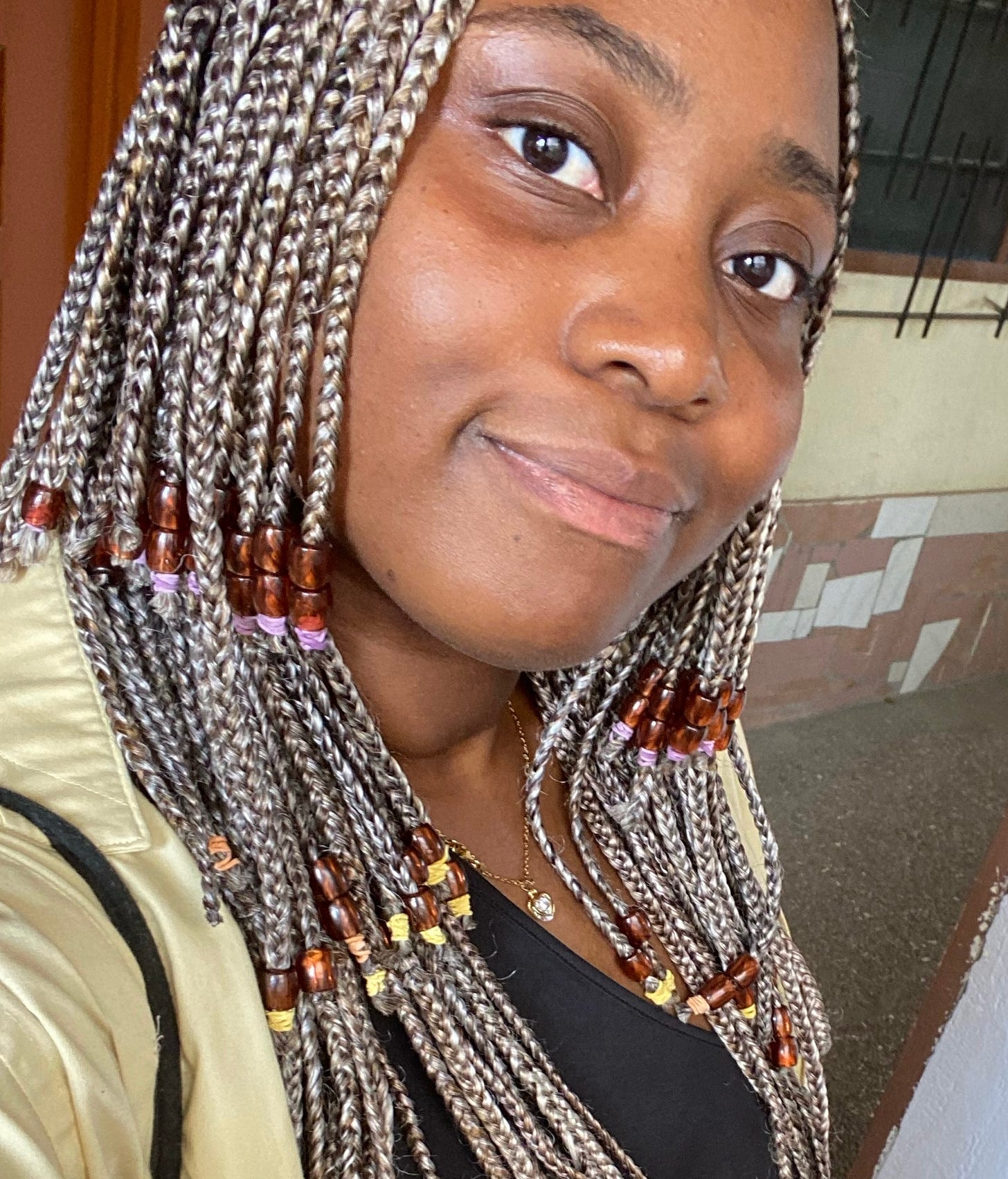Hey y’all,
So I’ve been thinking a lot about honesty lately.
I try to be honest with both myself and others at all times, but as a former people-pleaser, it still can be difficult at times, especially with others. Earlier this year, I wrote down both my goals and mantras that I wanted to stick to, and the number one mantra I bolded was: Do not be afraid of disappointing people (especially when you don’t know them).
There were two moments over the past week where I either had to be extremely honest with someone I didn’t know well and failed, or I desired extreme honesty from a friend but didn’t get it. Then, I saw this post on Instagram that hit home.
While 30 seems like an arbitrary age (so let’s just ignore that for now), the concept is simple: honesty makes life way more enjoyable. Everyone knows how you feel, everyone knows your boundaries, and everyone knows what matters to you. There is clarity, and, for better or worse, honesty provides the opportunity for understanding.
Back to last week, I feel like both of those moments robbed me and the other person of understanding, which caused confusion in my spirit and the relationship. The first moment where I wasn’t honest with the other person about how I felt, meant that I was being dishonest with myself. And the body keeps the score. Eventually, like 10 minutes later, my gut was screaming to tell them the truth because ultimately my dishonesty was just hurting me and disturbing my peace. With courage from my friend, I did and instantly felt better.
The second moment was between me and my friend. I needed her to be honest with me because I was feeling dismissed by her. When we spoke she said she felt she needed to mask the sadness she was feeling when people were around so people wouldn’t feel sorry for her. Which led to me feeling dismissed whenever I asked what was going on with her. We ended up having a long, extremely honest conversation about why that was and how her “masking” had affected both of us, and now we’re back on track.
Honesty is the best policy but whoever said it’s always easy is a bold-faced liar. While sometimes tough, when you’re not honest you rob yourself of peace and others of agency. And honestly, life is just better on this side. Keep it real, friends!
This Week’s Story
I don’t publish many cultural critiques on Carefree, but this week’s story by writer Sayou Cooper was too good not to share. Also, given the recent elections in Nigeria, the constant diaspora wars between Africans and African-Americans online, and the topic of being honest with ourselves, I wanted to share Sayou’s nuanced take on the first and second-generation African (born in a country outside of Africa to parents who were born in Africa) identity.
I want to make it clear that this week’s story is not about Jackie Aina. It may appear that way on the surface, but on a deeper level, it is a nuanced view of how those of us in the diaspora participate in commodifying our cultures under American capitalism. As a second-generation African, this week’s story resonated heavily. Enjoy!
Take care.
Anayo Awuzie
Editor-in-Chief of Carefree
Sòrò Sókè Candles and the Issue With First-Gen African Diasporans
By: Sayou Cooper
On big occasions, Jackie Aina’s social media is usually littered with opulent backdrops, beatdown makeup, and grand outfits. In August 2022, Aina released her latest candle collection, “The Owambe Collection,” for her popular candle company, Forvr Mood, in correspondence with her birthday. What I assumed would be a celebratory birthday week for the beauty and lifestyle influencer with the launch of her second candle collection, instead turned into a Black diaspora Twitter dragging.
Aina, a Nigerian-American digital creator at the forefront of aesthetic movements such as Black girl luxury, has amassed more than 1.5 million followers on Instagram and Tik Tok respectively.
Nothing elicited my shock upon initially seeing the collection. The candles are arbitrarily named after random Yoruba and African-esque phrases including “No Wahala” and “Spice of Life” (think “Eat. Pray. Love,” but the West African version), that is until you get to the “Sòrò Sókè'' candle. The Yoruba activist phrase, translated to “speak up/don’t be silent,” was a rallying cry for the 2020 Nigerian #EndSars protests, a social movement in parallel to America’s Black Lives Matter movement. It called for an end to police brutality and corruption faced by Nigerians, at the hands of the Special Anti-Robbery Squad (SARS), a unit within the Nigerian Police. Aina’s use of the activist phrase as trendy Nigerian slang for commercial purposes offended many within her community. Many argued she hadn’t spoken out enough when the movement first began.
Such labeling by Aina was not exclusively erroneous, but offbeat considering Aina’s record on callouts of American brands and companies due to their lack of diversity, and problematic practices. Jackie’s core fanbase is a reflection of me. Gen Z and millennial Black women look to her for not only makeup tutorials, but also her takes on hot-button topics. So much so, she has garnered the nickname “Aunty Jackie”. When it came to the struggles of Black people in the American lens, specifically misogynoir faced by dark skin Black women, Jackie seemed to be acutely aware of such themes. “Are Your Dating Preferences Colorist or Racist? Let's Chat!” she uploaded to Youtube in 2019 and “Why You Shouldn't Touch Black Women’s Hair” can all be found on her channel.
Additionally, Aina has heavily integrated her Nigerian identity into her professional branding, throwing an Ankara theme bash for the launch of “The Owambe Collection”. However, after the backlash, she swiftly followed up with an official apology posted shortly after. One can ponder if Aina’s error was a one-off, or rather a deeper reflection on the state of first and second-generation Africans abroad. Regarded as too African when migrating, and not African enough after assimilation into our host countries. This dissonance, or double consciousness, can lead to harmful characterizations of Africa and mainland Africans, even when unintentional.
In 1912, W.E.B DuBois’ labeled this phenomenon double consciousness, “The existence of African Americans ‘behind the veil’ of segregation is hidden from the view of most white folk, but those who live behind it also move in the ‘white’ world.” Du Bois theorized that African Americans live two separate lives, one under the gaze of white supremacy and their truer self when in community with other Black people. Taking this theme of double consciousness, first-generation Africans within the diaspora, specifically in the Global North are in a beguiling position. Our Blackness, alternatively our race, nationality, and ethnicity are not mutually exclusive. For instance, while I identify as African American with the duality of being Black and American, I’m also a first-generation African. Adding to the double consciousness of being Black, American, and African.
Without radical resistance and reading, first and second-generation Africans can also be consumers and exploiters of oppressive systems. Growing up, I felt connected to my West African culture, but that frame of reference was biased. Older relatives influenced my viewpoint on the region, years removed from a country they could hardly recognize now. Like most American youth consuming propaganda media, I self-consciously othered developing countries, and cultures not deemed white.
Regardless, the majority of the global Black population still lives in Africa. First and second-generation Africans in the diaspora are at a crossroads. Barely accepted in their foreign lands and physically disconnected from Africa, the line between performative and authentic identities become blurred. For instance, I have laughed at those African mom/dad/aunty video skits that can be found on Youtube, and now overwhelmingly on Tik Tok. Once the fake African accent drags on though, you can’t help but wonder if we are laughing with our people or at them.
Sadly, first and second-generation Africans risk commodifying their culture under capitalism. In the case of Jackie Aina and others, it’s blatant. Commodification galvanizes stereotypes and harmful tropes of a diverse continent for non-African consumption. From Marvel’s Black Panther to Beyonce’s The Gift, western media fantasizes about a continent under the cloak of Black empowerment, without truly acknowledging grim systems hindering the lives of many Africans today.
If there is anything to take away from Aina’s “Sòrò Sókè” candle controversy, it is the introspective discourse that followed after, and the reckoning of first and second-generation African diasporans. Identity is a beautiful thing, especially when it is not commodified.
Enjoyed this week's storyletter? Tap the heart & share it! 😍
Share on Twitter | Share on Facebook | Share via email | View past stories
Sayou Cooper is a journalist and multi-disciplinary artist. Her work underscores the African diaspora experience, by exploring themes of patriarchy and the legacy of chattel slavery in Black popular culture.









Loved your reflection on honesty ❤️